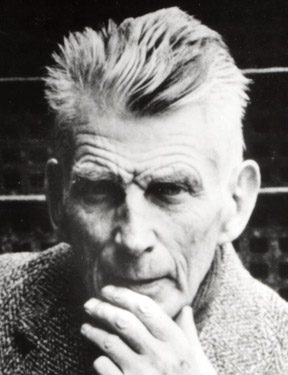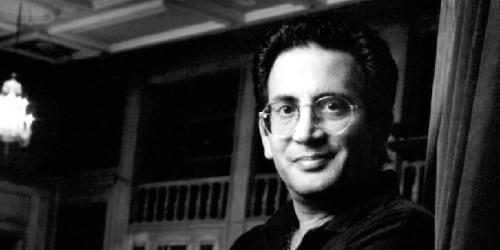- Tickets
- Memberships & Season
- Engage & Learn
- Your Visit
- Support
- Artists
- About
- Accountability
- Ticket Donation Requests
- Financials
- Rentals at the Goodman
- Our History
- Staff & Leadership
- Join the Goodman
- Press Room
- 2025-2026 Season
- 2024-2025 Season
- 2023 – 2024 Season
- 2022 – 2023 Season
- 2021 – 2022 Season
- 2019 – 2020 Season
- Hershey Felder as Irving Berlin
- Goodman Gala
- A Paris Love Story
- Bernhardt Hamlet
- The Santaland Diaries
- American Mariachi
- School Girls; Or, The African Mean Girls Play
- Molly Sweeney
- graveyard shift
- Roe
- 42nd Annual Production of A Christmas Carol
- Dana H
- Daughter of a Cuban Revolutionary
- New Stages Festival 2019
- 2018 – 2019 Season
- 2017 – 2018 Season
- 2016 – 2017 Season
- 2015 – 2016 Season
- 2014 – 2015 Season
- About the Goodman
Artist Bio

Samuel Beckett
Samuel Beckett (1906-1989) wrote his first novel, Dream of Fair to Middling Women, in 1932 and published a collection of stories, More Pricks Than Kicks, in 1934. His next novel, Murphy, was followed by his celebrated novel trilogy (Molloy, Malone Dies, The Unnamable). In 1947, he wrote his first play, Eleutheria, which he would not allow to be published during his lifetime. In 1948, he wrote Waiting for Godot. Its production in Paris in January 1953, by the director and actor Roger Blin (with whom Beckett would develop a lifelong friendship), brought the artist his first real public success both in and outside of France. In the 1950s and 1960s, Beckett’s playwriting continued with a series of masterpieces, including Endgame, Krapp’s Last Tape and Happy Days. He was involved in various productions of his plays across Europe and in the United States, wrote his first radio plays and continued to write innovative fiction. In 1969 he was awarded the Nobel Prize in Literature. His last major work, the prose fiction Stirrings Still, was written in 1986. That same year, he was diagnosed with emphysema. His deteriorating health prevented him from writing, and he died on December 22, 1989.























